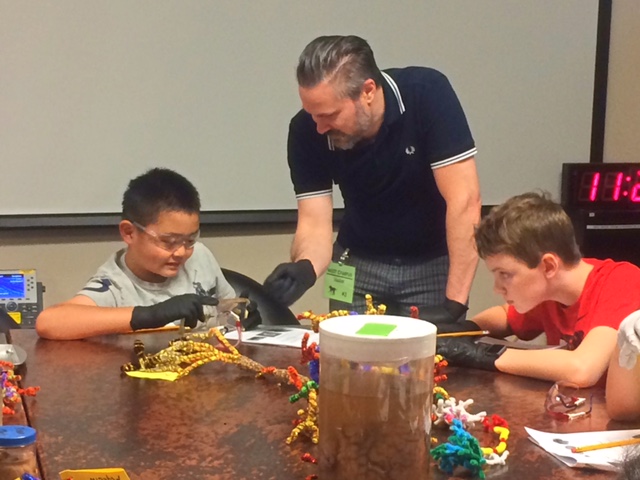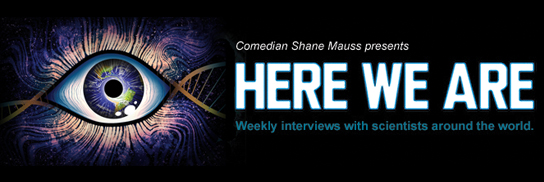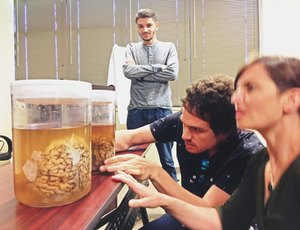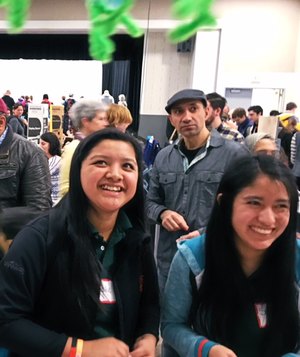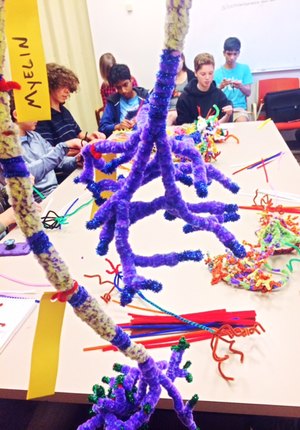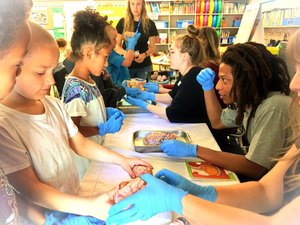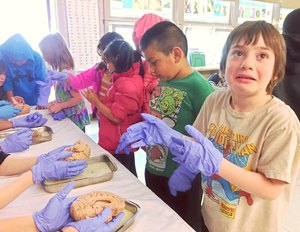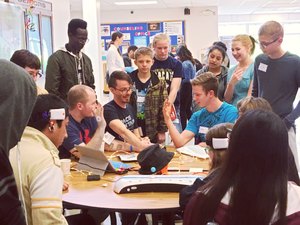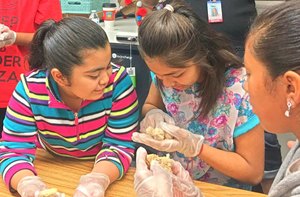
- This event has passed.
“Here We Are” with NW Noggin!
August 30, 2017 @ 10:00 am - 12:00 pm
Great conversation this morning with Shane Mauss, a professional stand-up comedian who produces the popular “Here We Are” science podcast. Each week, Shane speaks with a different scientist about their recent work or area of study, bringing their ideas to the public in a fun and accessible way…
LEARN MORE: Here We Are
Today Shane held a brain, examined pipe cleaner photoreceptors, and together we co-hosted and planned a second conversation (potentially next week) with Noggin Art Coordinator Jeff Leake. We also considered the following question…
What do you wish everyone in the world knew about neuroscience (or anything in general really)?! What are the top things about the brain & behavior that captivate you – and your students?
I put this query to our accomplished Noggin Resource Council members, and here are their thoughts…
Jessica Patching-Bunch: I love the ability we have to rewire and create neuro pathways. I think that it is important that people know that at any given time (though it’s not always easy!) they can choose to create different habits, thoughts and daily practices that help their brain to change and grow which in turn helps them in their daily life.
Brianna Jacobs: That neuroscience isn’t isolated to academia and clinicians; that it’s something that can be accessible to children, and those of all educational backgrounds. We all strive to know what makes us human, what drives our needs and desires, what makes us similar and different.
Sulema Rodriguez: I wish that people knew that neuroscience is not something that can only be learned by a few elite. Once you start to learn about neuroscience your world view changes. You begin to understand that these neuronal connections are what make up who you are. It’s honestly pretty amazing.
Ruth Marigomen: I wish everyone knew that studying neuroscience is a form of introspection. With every single discovery we make about the inner workings of the brain, we are not only answering pertinent scientific questions—we are also addressing our long-time question of “What make us human?” I must say that before I entered the field, I had a lot of these philosophical questions: inquiries I thought would be hushed by the austere, more tangible answers I would get as I learn about the brain. I thought that neuroscience would enlighten me about concepts like perspective, memory, and behavior, and oh, was I wrong. The more I studied it, the more I felt ignorant. The more concepts I dove into, the more philosophical inquiries I have triggered: “Are our emotions nothing but a surge of a cocktail of neurotransmitters?” “Are our cherished memories not as real and accurate we thought?” The enthralling questions abundant in the field of neuroscience can trigger the intrinsic queries we have about ourselves as humans. And those are the questions worth asking anyway.
Christina Williams: So, first of all I wish everyone knew that the 10 percent myth, is exactly that, a myth! It’s surprising how many people truly believe this. I think Hollywood is largely to blame. Hence movies like limitless, and that hideous movie Lucy! Ugh! I shudder just thinking of it! Yuck! The second thing I wish we could all know about neuroscience, is the nature of consciousness. If it’s the sum of all parts of the brains inner workings, or if it’s the result of certain structures or functions of the brain. I’ve heard many theories and some too wild to consider. But I’m sure this is a piece of neuroscience knowledge that everyone in the world would want to know. Also: What is the nature of brain death? As someone who has been involved in the medical field for over a decade, I am quite familiar with all the facets of code blue, and the situations where people are clinically dead for extended periods of time before being resuscitated. I once saw I women be brought back after nearly 15 minutes with no measurable vital signs whatsoever! It was truly astonishing! However, in a more recent incident at my last job, I had a patient who coded while I stood there, and even after several of us performed CPR, and the medics came and used the paddles, he was gone. What determines that moment, when and where in the brain is this spark held. What is the neurological, or neurophysiological nature of this electrical signal and what determines its on off function?
Joey Seuferling: Neuroscience is a field with so much left to discover, and the idea that our brain allows us to experience a world full of excitement and wonder is very special. Our brain is who we are!



